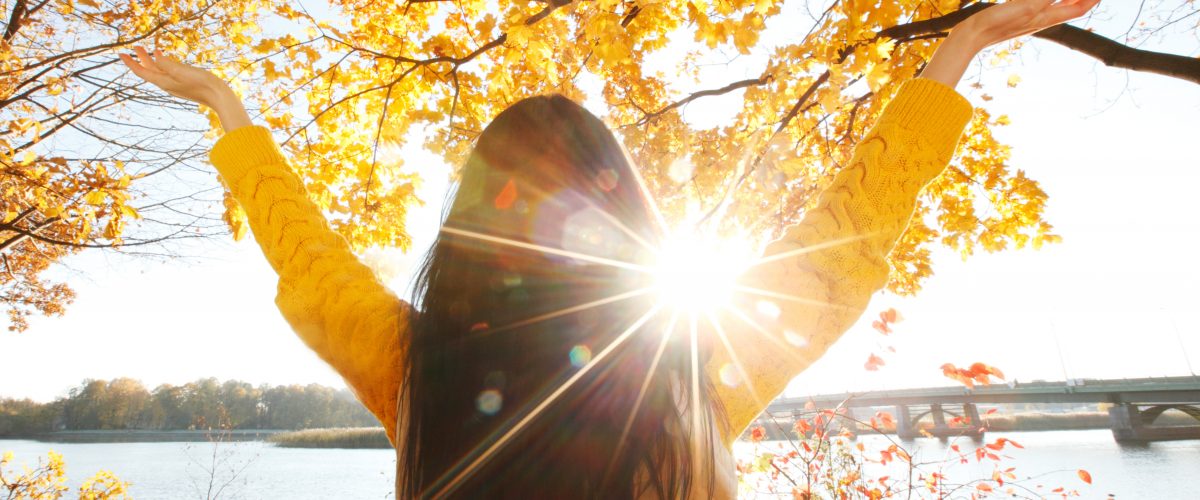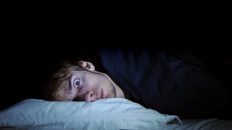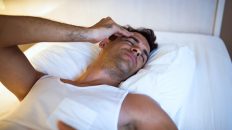By Virginia Gurley, MD, MPH
MB (Marc Braman, MD, MPH):
Hi, I’m Dr. Marc Braman, here with Dr. Virginia Gurley, and our topic this time is “Improving Sleep with Daylight.”
In other sessions, we’ve talked about how light at night blocks restful or quality restorative sleep. What about light during the day – does daytime light affect sleep?
VG (Virginia Gurley, MD, MPH):
It sure does, Dr. Braman. Both the timing and the amount of bright light you get during the day have a big affect on the quality your sleep.
MB:
So, how can light during the daytime affect how well I sleep at night?
VG:
Well researchers at Harvard have done several studies where they found that being exposed to bright light during the day protects you somewhat from night-time light that blocks natural melatonin production and restful, restorative sleep.
MB:
Are you saying bright daytime light makes you less sensitive to the negative effects of light at night?
VG:
Exactly. What most people don’t realize is you don’t get enough daytime light to protect yourself from nighttime light if you spend most of your day indoors.
MB:
Well, most of us do spend our time indoors and it’s not like, you know, I’m in the dark when I’m indoors. So, why aren’t indoor lights bright enough?
VG:
Yeah, it seems strange, but it’s because most indoor lighting is at least 500 times dimmer than light from a sunny open sky. And even when the sky is cloudy, standard indoor lights are 10 to 50 times dimmer. It has only been in the past 150 years that work and lifestyles have shifted so much of our time that we’re spending it indoors where the brightness of light is so much less than outdoors.
MB:
Wow, so 500x difference! We don’t realize how much different that is. Our eyes do such a great job of adjusting to different light levels that we’re just not aware of how big a difference that really is. And it sounds like spending time in sunlight or outside can improve your sleep. How much time is enough?
VG:
Well, it seems that anyone who spends most days indoors can benefit from getting at least 20 to 30 minutes in sunlight or even under the open sky on most days. And some people can’t get outside because they work at night, or they live near the arctic, or Antarctica, or they have health reasons. But, light boxes that put out at least 2000 lux are a good alternative to getting some bright light everyday.
MB:
So, for those of you that may benefit from light boxes, just take note of that figure. You’re looking for something that is at least 2000 lux. So, Dr. Gurley, is there any particular time of day when sunlight is better or maybe even safer?
VG:
Good question, yes, early morning and late afternoon light are much more effective for keeping our sleep restful and reducing the harmful effects of light at night. The best approach is to spend at least 15 to 20 minutes outside in the morning and then again in the late afternoon. Morning and evening light also help keep our body’s internal clocks in sync with the sun, and also ultraviolet radiation is less at these times.
MB:
Okay, so essentially we’re identifying, through science we’re now identifying, one of the causes of our sleep problems in modern society. We’ve really become disconnected from the sun, our source of light and energy for planet earth. So our prescription in treating the cause, what we want to do to get good sleep and to protect against the negative effects of nighttime light, is simply daylight. And we can do that effectively if we have some morning and evening outdoor exposure.
Dr. Gurley, thank you so much and until next time!
VG:
Thank you, Dr. Braman.
News Feature: A matter of timing. Fields H. Proceedings of the National Academy of Sciences of the United States of America. 2015;112(9):2625-2627. doi:10.1073/pnas.1423786112.
Entrainment of the Human Circadian Clock to the Natural Light-Dark Cycle. Wright KP, McHill AW, Birks BR, Griffin BR, Rusterholz T, Chinoy ED. Current biology : CB. 2013;23(16):1554-1558. doi:10.1016/j.cub.2013.06.039.
Direct Effects of Light on Alertness, Vigilance, and the Waking Electroencephalogram in Humans Depend on Prior Light History. Chang A-M, Scheer FAJL, Czeisler CA, Aeschbach D. Sleep. 2013;36(8):1239-1246. doi:10.5665/sleep.2894.





